Deep inside the low lying forests of Mexico’s Yucatan Peninsula, workers tend to large apiaries to collect a very special type of honey known as melipona. This rich, syrupy liquid has been a sacred source of food and medicine for the indegenous Maya for millenia. Today, melipona honey production is still steeped in culture. It is also gaining worldwide recognition for not only its superb richness but its health properties as well, including by renowned chefs like René Redzepi of Noma.
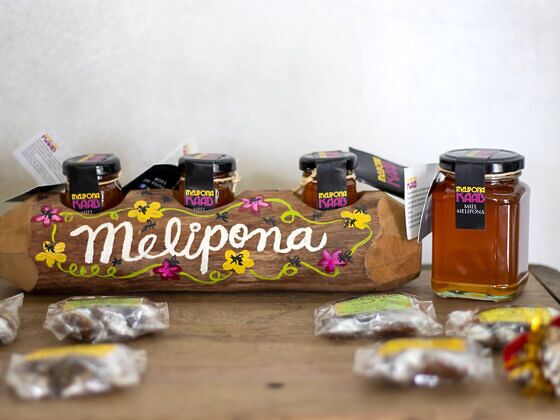
A Trip to the Yucatan Isn't Complete Without a Taste of the Cherished Melipona Honey
These bees, however, have long been under threat of extinction. As the Yucatan’s honey gains fame, beekeepers and honey producers are facing additional challenges from climate change and deforestation. And they’re working hard to preserve and protect this prized natural product.
Honey production in the Yucatan dates back to the Mayans. Honey was collected from wild beehives until the stingless species melipona beecheii was domesticated. For the Maya, honey used in sacred rituals and was a source of sugar as well as medicine. Ailments such as eye infections, respiratory diseases, digestive disorders, and skin diseases were all treated with the native melipona honey.
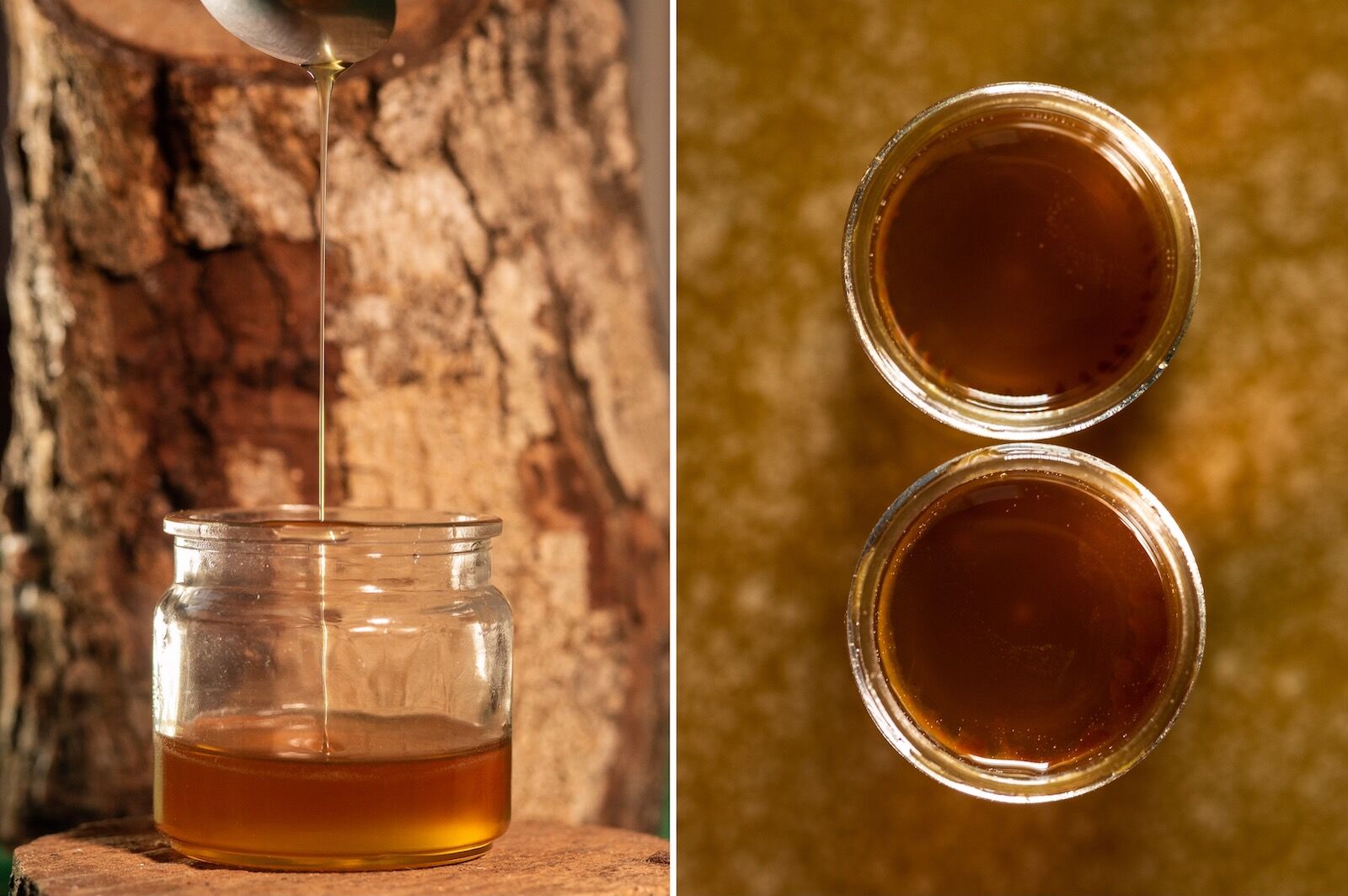
Photo: Left: Alessandro BanchelliShutterstock Right: Alessandro BanchelliShutterstock
After Spain colonized Mexico, several species of European bees were introduced, and much of the early wild beekeeping traditions were lost. However, in many Mayan communities today, melipona apiculture is still an important part of daily life. The traditions that survived are being passed down to new generations — though many young people are leaving the countryside for growing cities and leaving much of the bee collecting to the older generations.
At the same time, thanks to melipona’s new-found fame overseas, honey production in the Yucatan has seen a dramatic shift from small to large scale production and producers are entering a new world of marketing and sales. Silvia Izel Morán from Balaam Keeb is one producer working hard to promote melipona honey for its incredible quality and flavor while preserving the culture behind it.
Balaam Keeb has a storefront in downtown Mérida and sells a wide range of products, from jars of honey to soaps. The jars are separated by flower types which, aside from the special bees themselves, is what sets the Yucatan’s honey apart.
“The flowers that are here in the peninsula are only in this zone,” Izel Moránn tells me. Native plants like dzidzilche, jabin, guava, tajonal, and san diego make all the difference.
These diverse plants are also the sources of many of the honey’s medicinal properties. Of course, none of these compounds could get into the honey if it weren’t for the hard working bees.
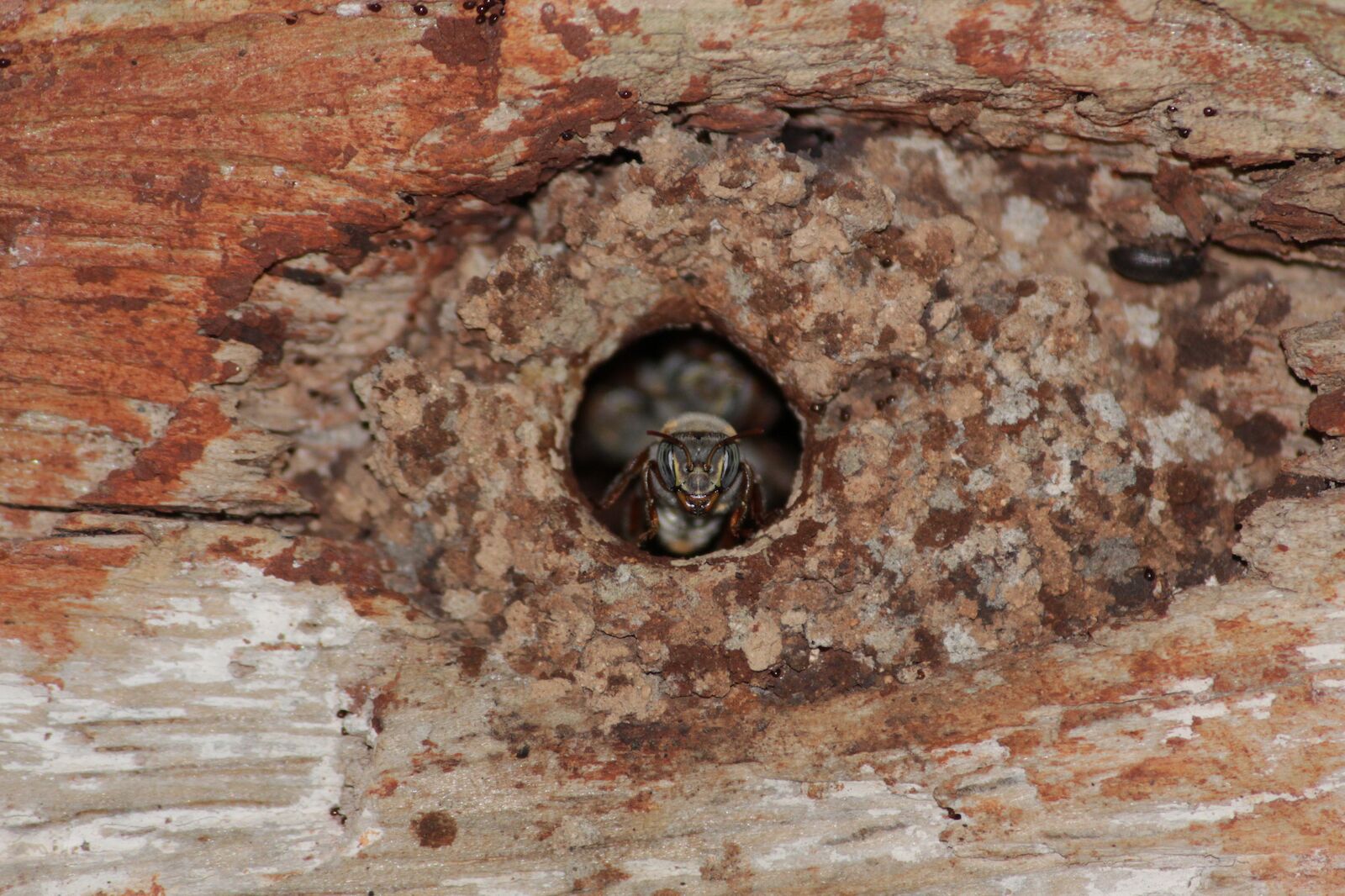
Photo: Mario ChirinosShutterstock
“On average, a bee makes 10 trips a day, and on each trip it visits approximately 100 flowers,” Izel Morán says.
Some companies are making a beeline from honey to producing medicine from other substances created by the bees. Dr. María de los Ángeles Moreno Ojeda of Sanjool produces propolis, a resinous substance produced by the bees that’s said to have antifungal, antiviral, and cancer fighting properties. Propolis is the same substance used by ancient Egyptians to embalm royalty, a practice that says a lot about the world wide importance of apiculture. Although more conclusive scientific research is needed, propolis has been used for thousands of years as a medicine worldwide.
“The trees of the Yucatecan jungle are some of the most efficient in making quality propolis, a resinous substance that is produced by the bees (in our case Apis Mellifera),” Izel Morán says. “The bees use this propolis to protect their beehives.”
Although honey production remains an indispensable cultural and economic activity in the Yucatan, climate change is creating new hurdles.
“The climate affects the plants and flowers, and if bees don’t have enough nectar and pollen they can die,” says Helga Giovannini at Ruta de Miel, a company that makes honey and bee products in Merida.
The Yucatan’s weather and rain pattern have always posed a risk to agriculture. Many people are worried that these unpredictable patterns are getting worse. Izel Morán notes that there wasn’t much rain, and therefore not many flowers, in 2017. The reverse can also be catastrophic. If unseasonably heavy rains occur, the pollen may be stripped off the flowers before the bees can pollinate and create honey.
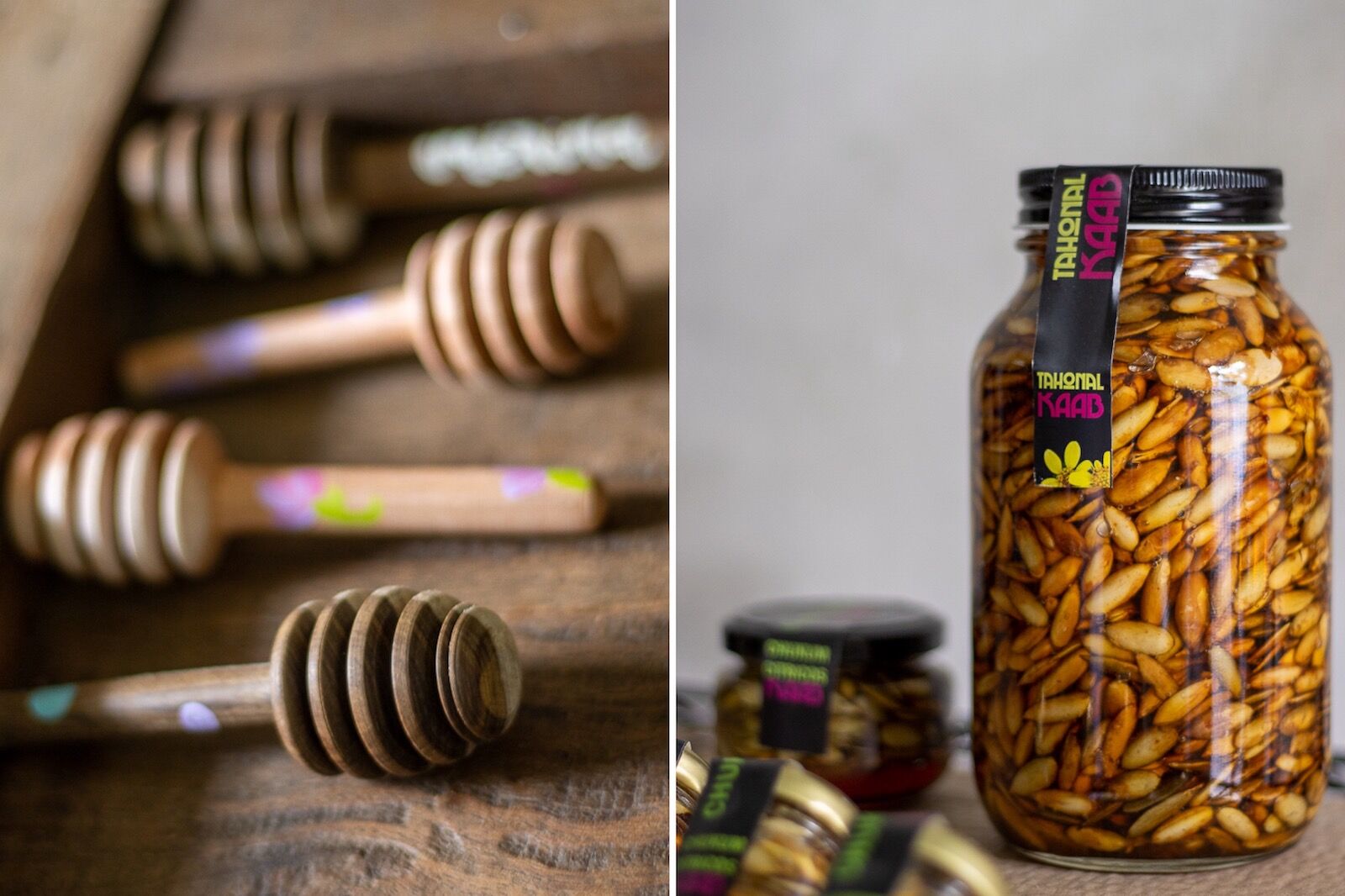
Photo: Samantha Demangate
In the face of global warming and a shifting workforce, many of the Yucatan’s honey producers are doing everything they can to not only save this cultural resource, but to take it into the future. Because of the high demand for Yucatecan melipona honey and honey products in fine dining, cosmetics, and health industries worldwide, many places are expanding operations. And along with the expansion comes conservation.
Many beekeepers are educating local children, tourists, and local businesses alike, and are raising awareness about the vulnerability of the natural habitat. As a valuable natural product, melipona honey is closely regulated locally and internationally, ensuring that the best quality product comes from this region.
Today, the pride for melipona honey and its incomparable quality is insatiable. Anyone visiting Yucatan state must try this honey and the other products these unique bees create.
Where to shop for melipona honey and honey products in Mérida, Mexico
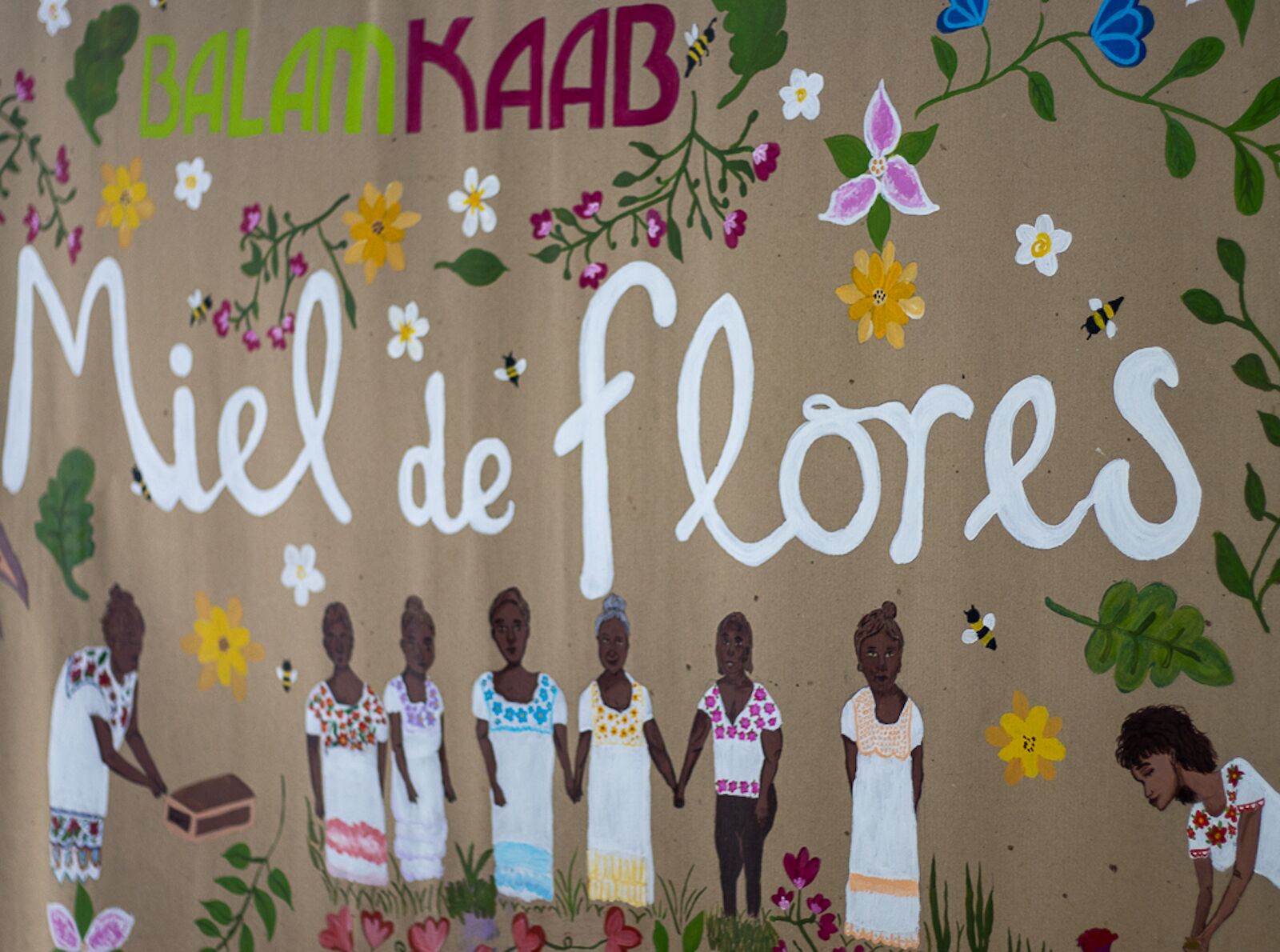
Photo: Samantha Demangate
Balaam Kaab: The storefront is located inside the incredible restaurant Pancho Maiz, where several wonderful products from honey to candles are sold. Contact the business via Facebook or stop in to shop in the beautiful store.
Where: Calle 59 437a, Parque de la Mejorada, Centro, 97000 Mérida, Yuc., México
Sanjool: Sanjool is a family business focusing on the production of propolis from local melipona bees.
Where: C. 48 #472, Brisas del Bosque, 97143 Mérida, Yuc., México
Ruta de Miel: A small group of melipona beekeepers that collects honey one or two times a year, as well showing the bees at schools and public events. Ruta de Miel sells its products, including soaps and mead, on Etsy and in markets and boutique stores around Mérida.
Where: Calle 11, 118, local 4, x 14, García Ginerés, 97070 Mérida, Yuc., México